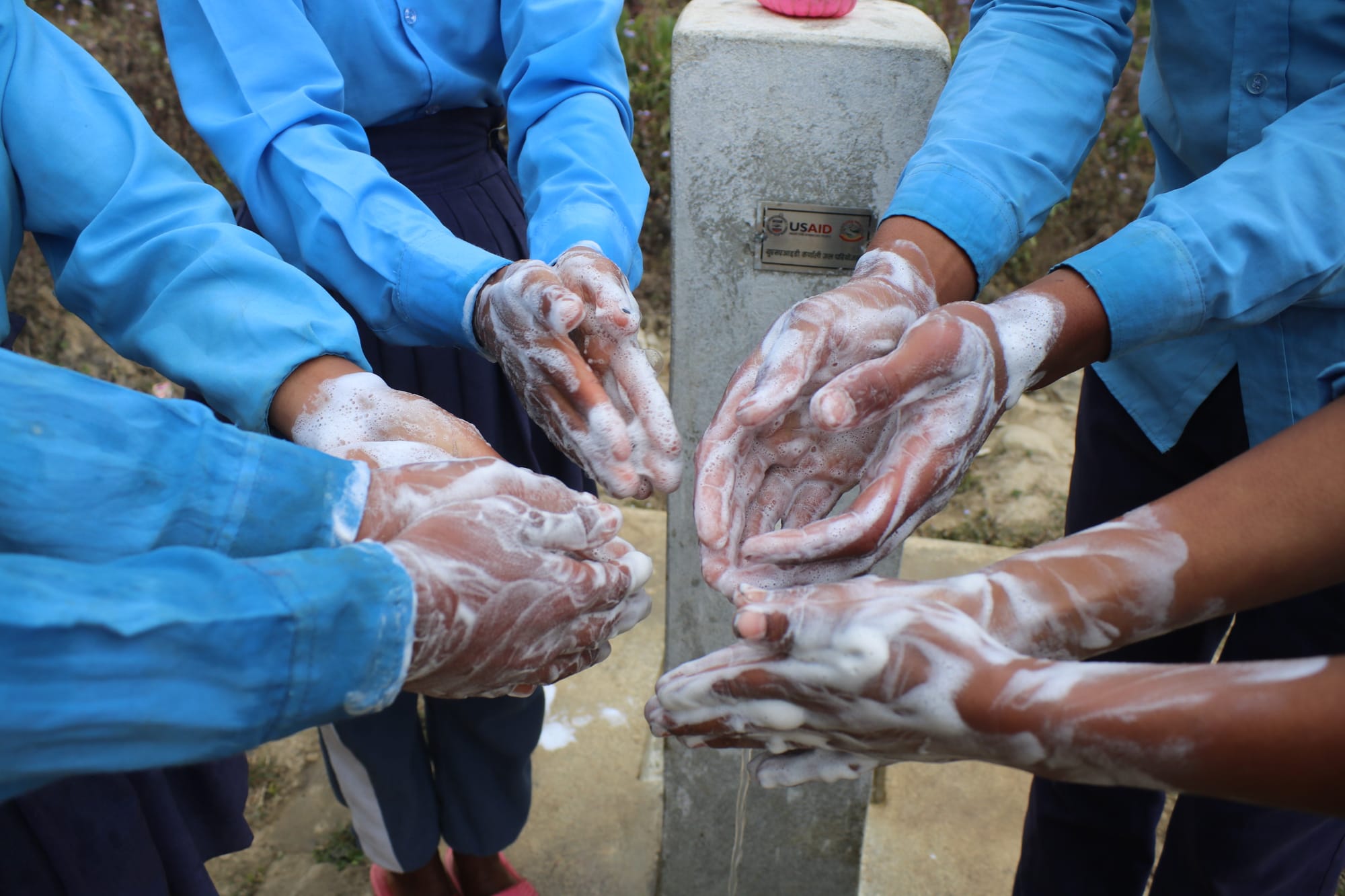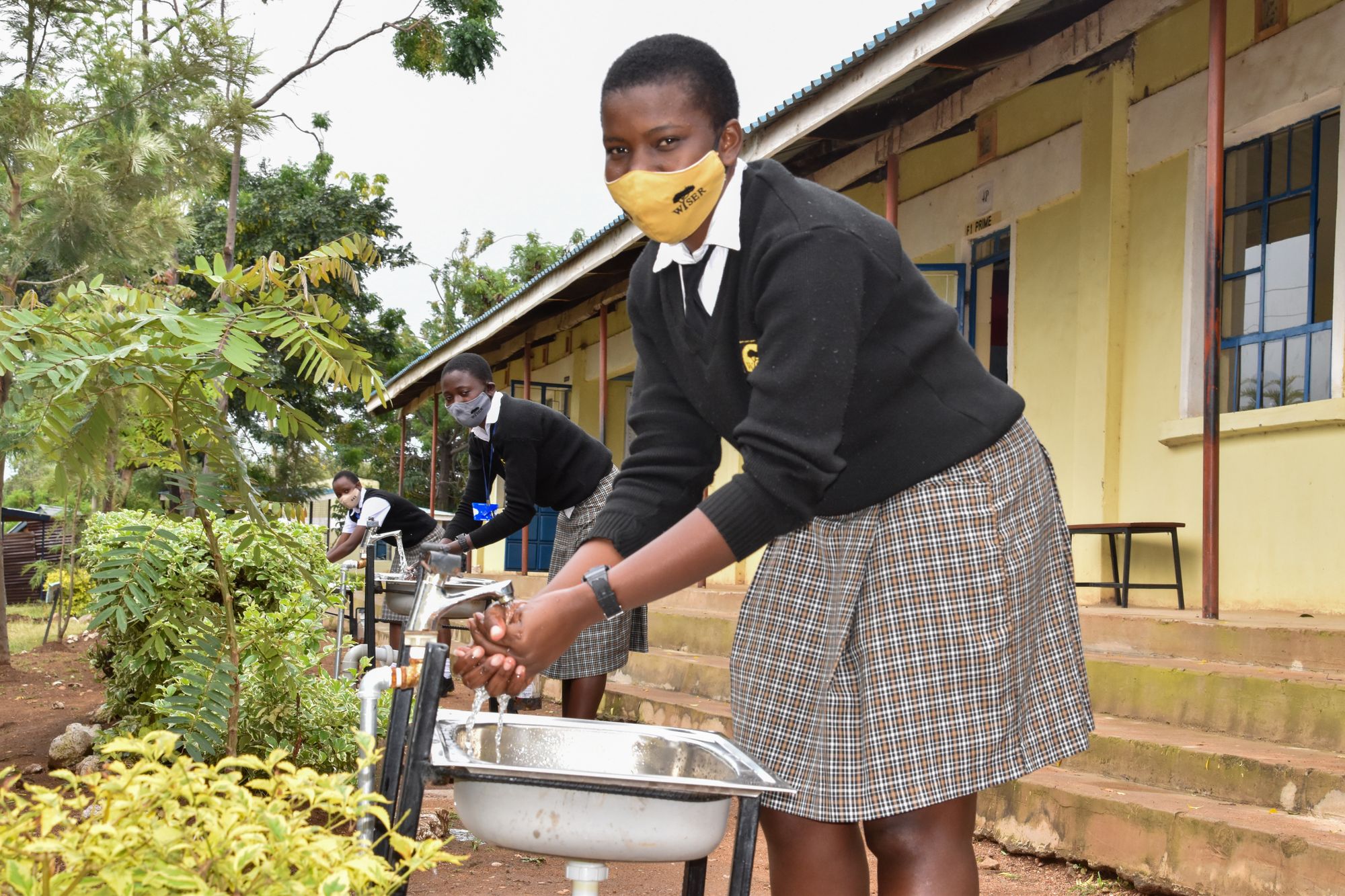Menstruation remains a deeply stigmatized and taboo topic in Nepal. It is deeply entrenched in the Karnali Region of western rural Nepal, due to the harmful social practice of chhaupadi.
Chhaupadi isolates menstruating women and new mothers for multiple days in sheds called chhau. They are barred from accessing clean water and nutritious food, and participating in household, social, and community activities, reinforcing their "untouchable" status during menstruation. They don’t even have access to water points and toilets. This seclusion exposes them to numerous risks, including animal attacks, carbon monoxide poisoning, health issues, and even crimes such as rape.
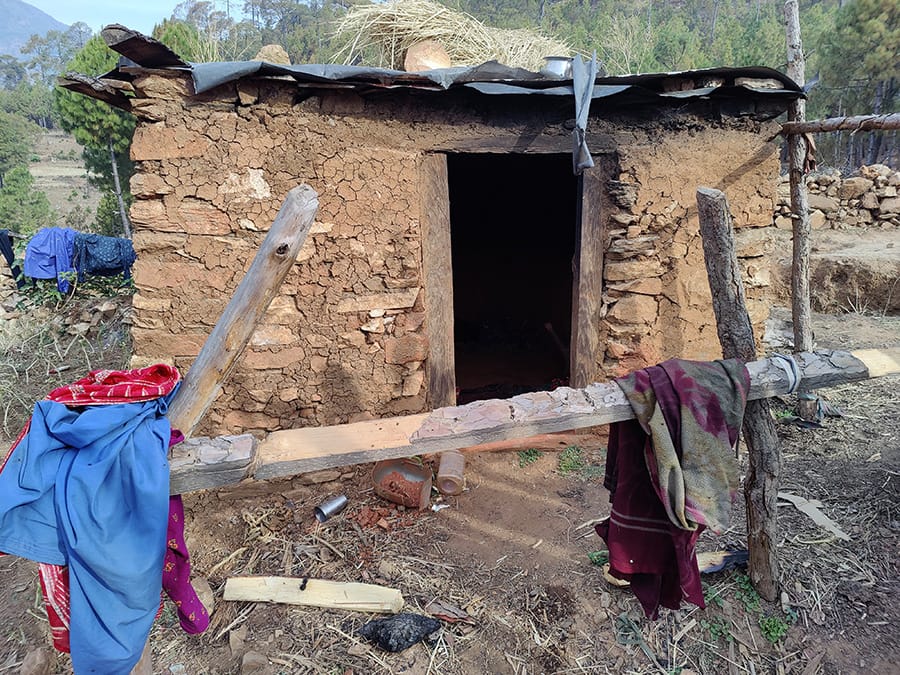
In 2005, Nepal's Supreme Court acted to eliminate chhaupadi, leading to the introduction of guidelines by the Ministry of Women, Children, and Social Welfare in 2008. Despite these measures, more than 70 percent of women in certain mid-western districts continue to practice chhaupadi, according to a 2019 Nepal Multiple Indicator Cluster Survey.
Nepal in 2017 criminalized chhaupadi, imposing fines and jail sentences on those enforcing the practice. Additionally, various nongovernmental and social organizations have launched chhaupadi-free campaigns, demolishing sheds and declaring villages as "chhaupadi-free zones."
Deep-rooted social norms and religious beliefs sustain this harmful practice, subjecting women to what adds up to about seven years of isolation throughout their lives. Research by the Karnali Water Activity, funded by the U.S. Agency for International Development (USAID) and led by DAI, shows that menstruating women often face restrictions preventing them from entering the kitchen, touching water sources, and limiting water and toilet use, forcing them to rely on river water for hygiene.
Additionally, despite the availability of sanitary pads in schools, adolescent girls continue to show low school attendance rates due to factors such as untouchability and the stigma associated with menstruation, a lack of gender-friendly toilets, and limited proper sanitary pad disposal facilities. These findings underscore the complex interplay between cultural beliefs, societal norms, and individual behavior in menstrual hygiene practices.
Turning a Corner
In this context, the Karnali Water Activity is now working to break the silence surrounding menstruation and pushing for dignified menstruation hygiene management through social behavior change campaigns. The initiative targets marginalized communities in rural areas, reaching 168 households with crucial information and offering small, readily achievable actions at Thaplanigalpani of Achham, Matela of Kalikot, and Ema of Mugu. In collaboration with communities and local governments, the initiative seeks to destigmatize menstruation, framing it as a natural process.
A total of 175 people—162 women and 13 men, ranging in age from 13 to 70—were equipped with essential skills through a session on crafting reusable sanitary pads. The reusability of the pads makes them economically viable and affordable. The cost of two packets of commercial pads is equivalent to crafting four reusable pads, which can last for a year, unlike commercial pads that are single-use and pose disposal challenges.
Women and girls are enabled through sessions on hygiene management, and training on how to produce reusable sanitary pads at home—liberating them from relying on old cloth napkins (or nothing at all), addressing hygiene concerns, reducing leakages and discomfort, and lower their stress around disposing of the sanitary pads. Participating women now say they feel empowered and confident, openly discussing menstrual hygiene with neighbors, peers, and even male family members, which was not the case before.
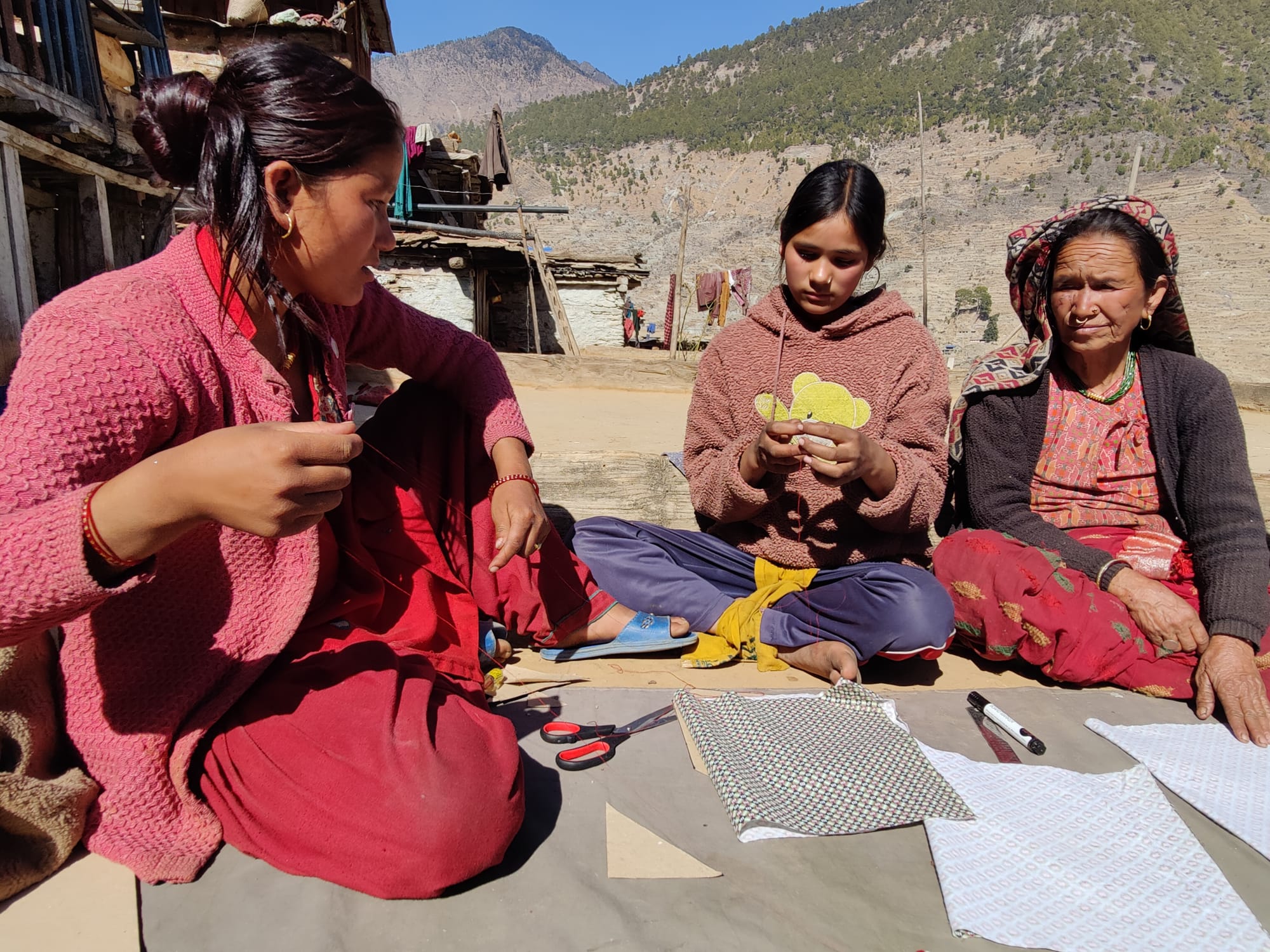
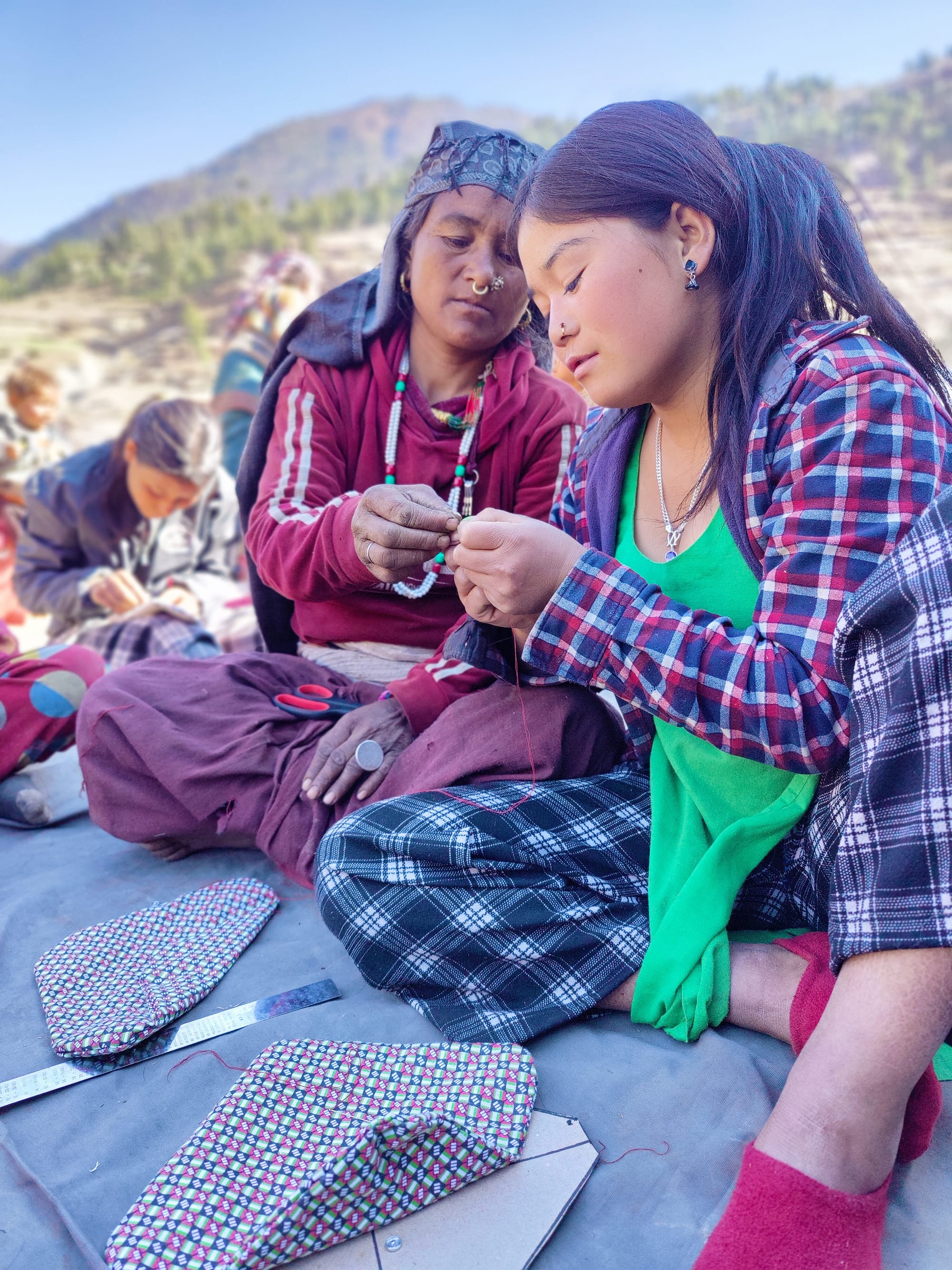
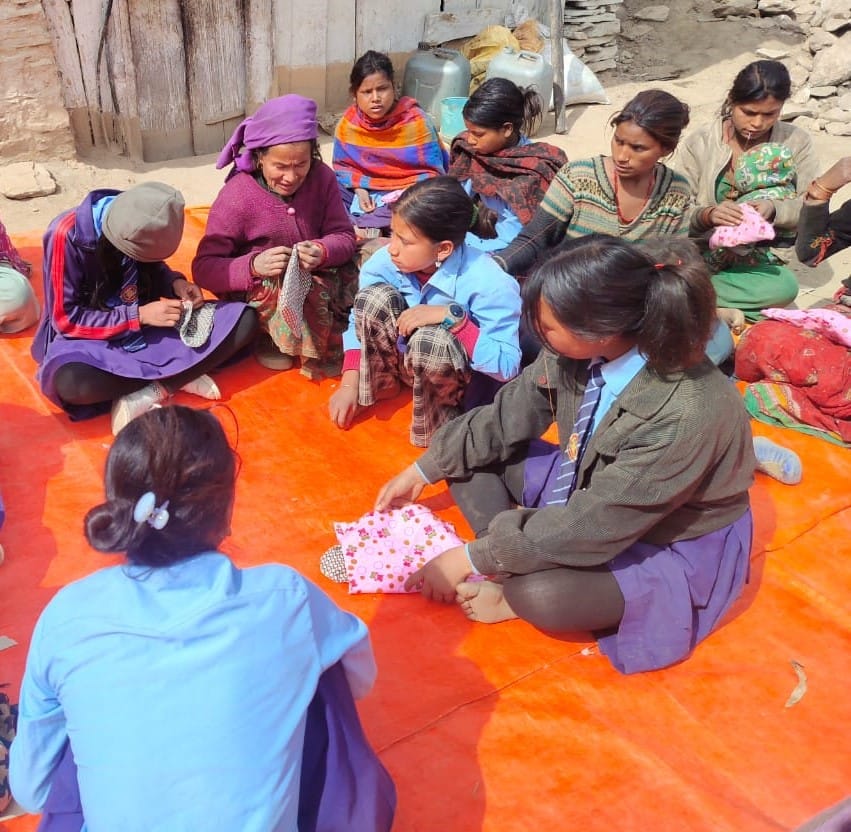
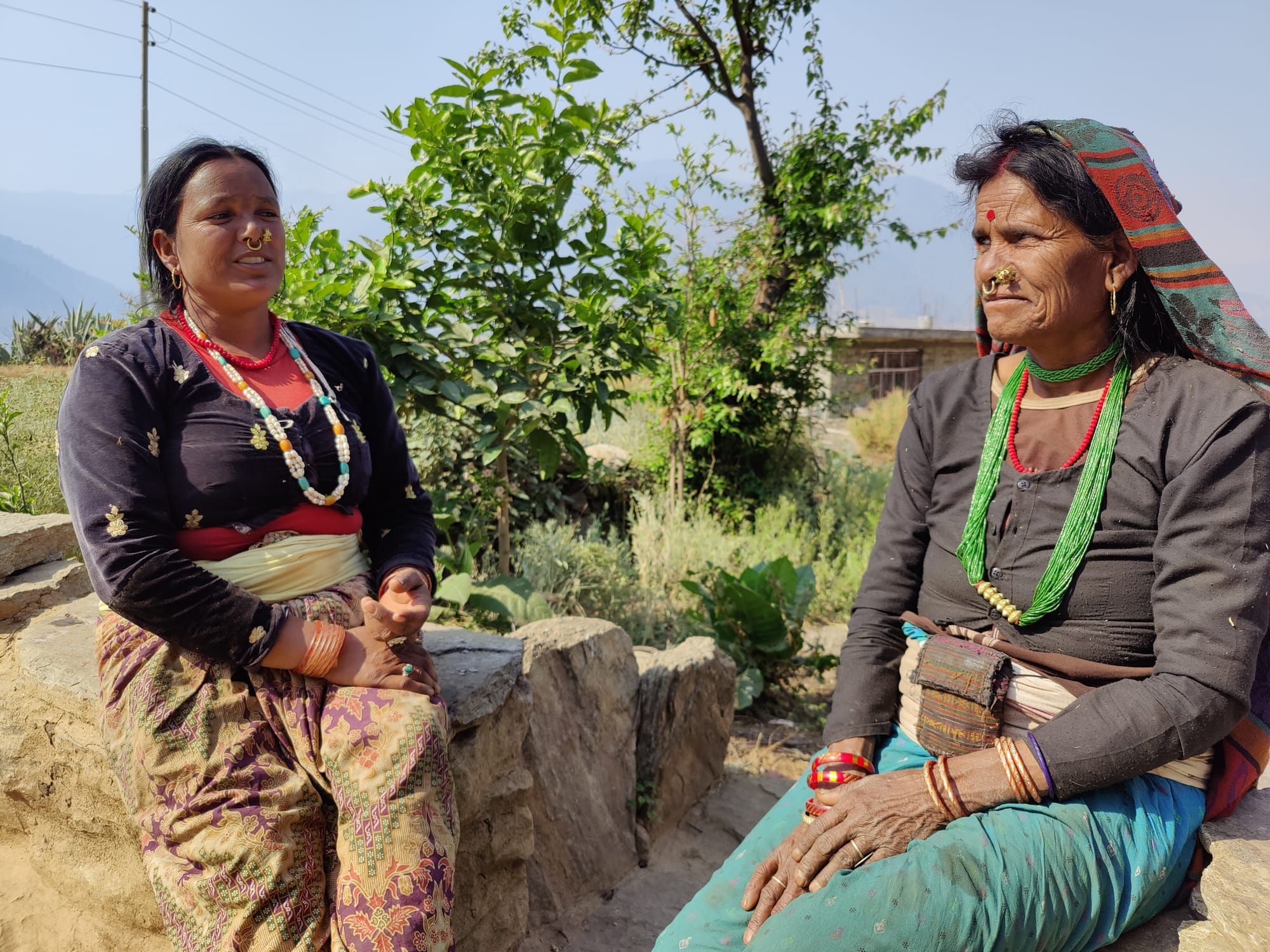
Photos: USAID Karnali Water Activity.
“With the use of homemade reusable sanitary pads, we’re free from blood stains and no longer stressed about leaks,” said a woman named Pulti. “These pads support our menstrual hygiene and dignity and boost our confidence.” Pulti’s openness highlights the shift in attitudes toward menstruation: “Before the training, people felt shy talking about menstruation and reproductive health-related issues. But now, we discuss our issues openly because we realize everyone faces the same challenges.”
Another woman, Tara, echoed these sentiments. “I didn’t know about pads to use during menstruation. After the training, I now make washable cloth pads at home.” She had initial doubts, but after using the reusable pad, she found it reliable, easy, and washable for reuse. A third participant, Phulmaya, described the homemade pads as cheaper, durable, and environmentally friendly.
Encouraged by their experiences, women have taken the initiative to craft additional pads not only for themselves but also for their family members. A woman named Bishmata even distributed homemade pads to women and girls in need in her community, and she plans to produce them for sale. “Since I have a sewing machine, I want to produce them commercially as learned in the training, and my husband is supporting me.”
A woman named Mamata emphasized the health advantages of sanitary pads over cloth napkins, saying: “Using old cloth napkins can harm our health. The homemade reusable pad-making is safe, and I don’t have to rush to the market to buy the commercial pad.” She added, “We produced the additional pieces and now all the women and girls of my family are using it.”
The USAID Karnali Water Activity, in a community dialogue, also brings together groups of women and girls from seven or eight households across the three communities for a series of sessions to discuss dignified menstruation hygiene management. Facilitated by social mobilizers, the sessions help participants to discuss personal and social, and act upon actionable solutions. Furthermore, the community-level orientation brought the neighbors together to work collectively to understand the problems, barriers, and possible solutions—shifting the perception of menstruation from a source of shame to a matter of pride and a natural part of biology.
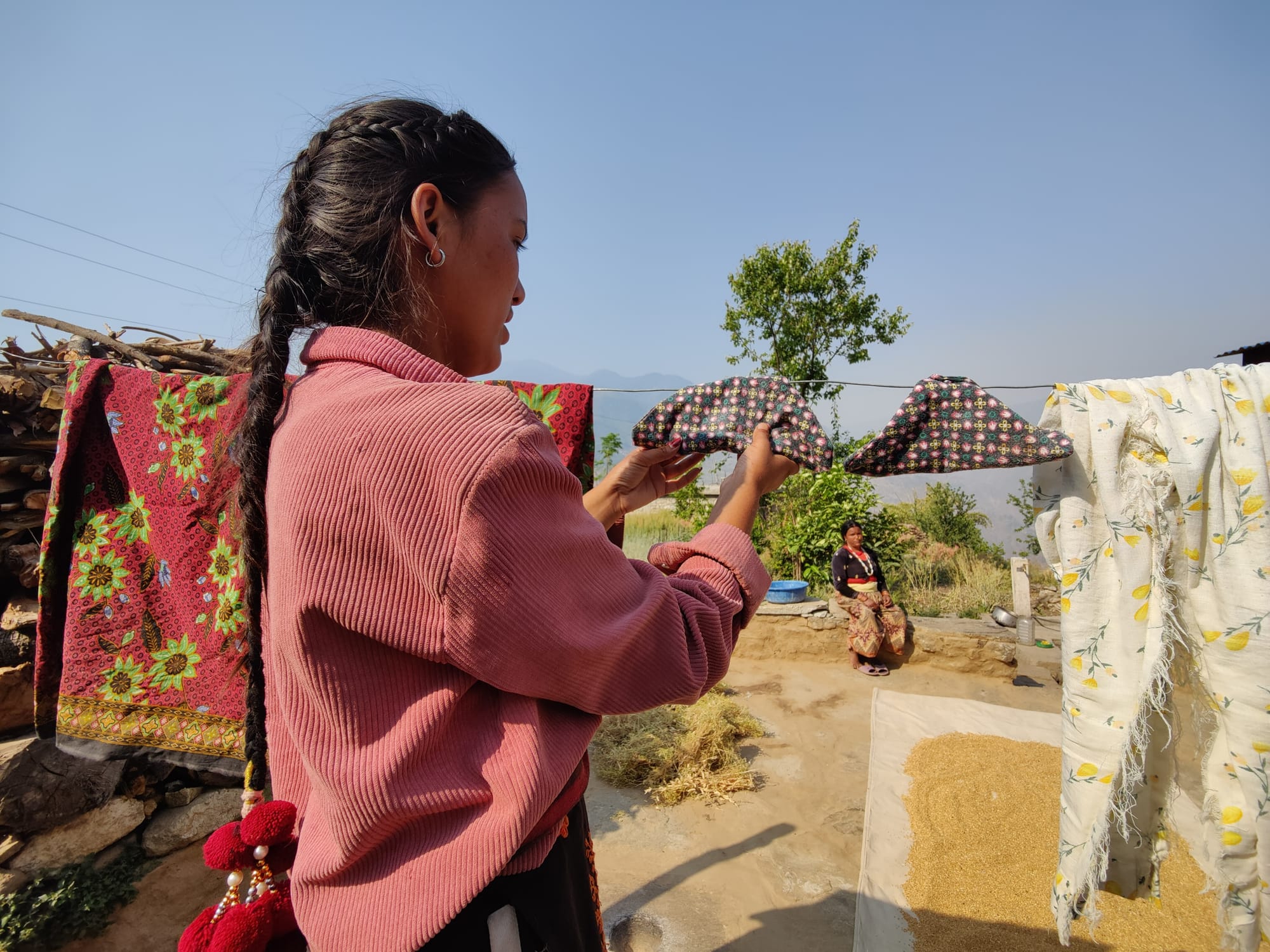
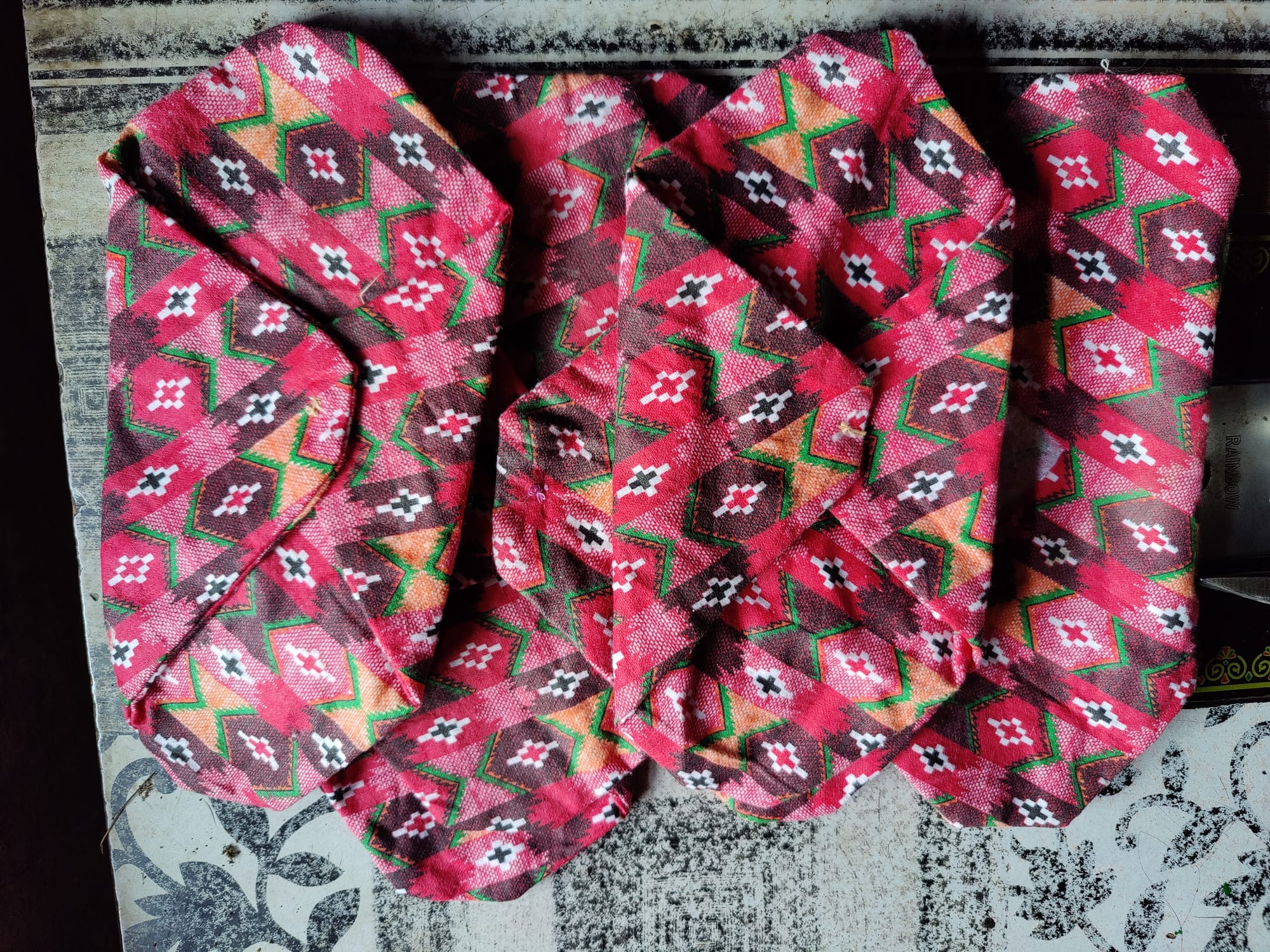
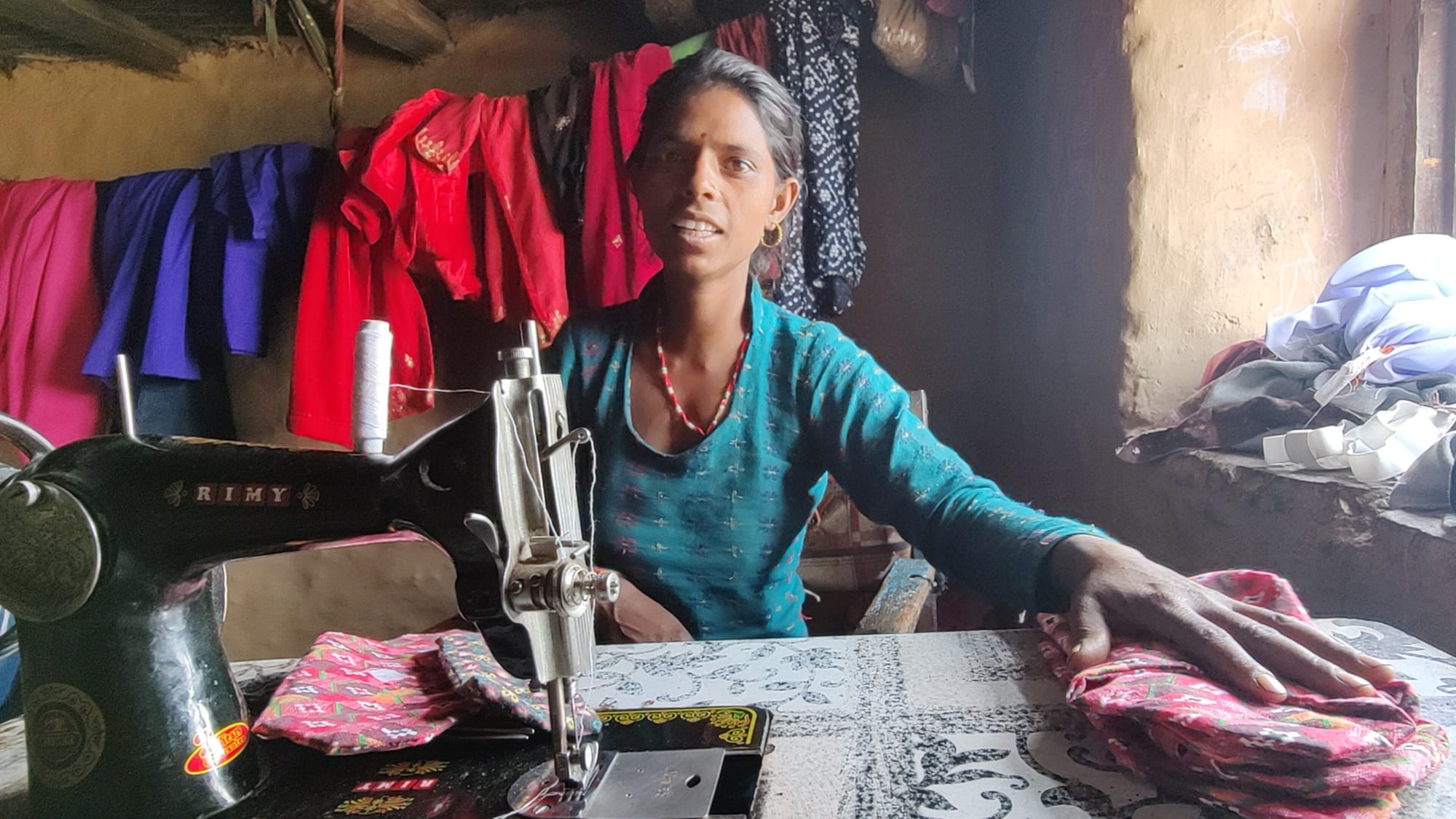
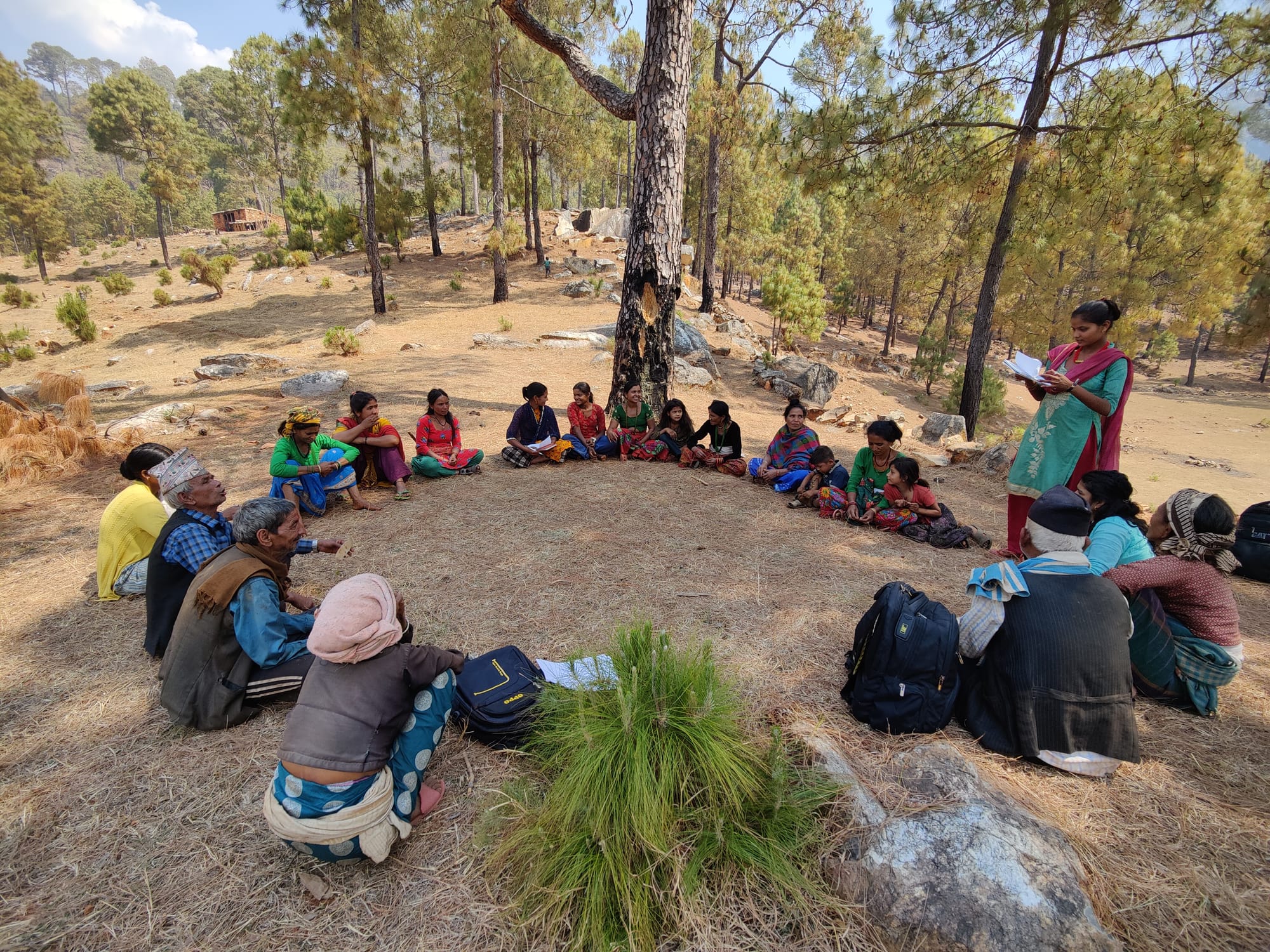
Photos: USAID Karnali Water Activity.
Winning Men Over
Men and boys have rarely been involved in menstrual hygiene management, reinforcing the traditional perception that it’s solely a women’s issue dictated by tradition. However, this narrative is slowly changing as menstrual hygiene management is increasingly being recognized as a family issue.
To complement the community-level activities, the Activity engaged local FM radio stations to reinforce the recommended behavior through public service announcements. Encouragingly, such messaging has found support among some men. Bikash, a young man from Matela, expressed his newfound understanding and support for menstrual hygiene management after participating in pad-making training: “Before the training, neither did I talk about this issue with my mother, nor did she share it with me.”
In Thaplanigalpani, community member Karnal Sing noted a gradual improvement in water access for menstruating women, though some still resort to rivers or other designated water points. Encouraged by this progress, Sher Bahadur BK is challenging norms by repurposing a room for his granddaughter, Sheetal, during menstruation, and advocating for safer alternatives to chhaupadi. “I am ready to face community backlash as it is high time to stop these harmful practices,” he affirmed, reflecting a growing resistance to harmful traditions.
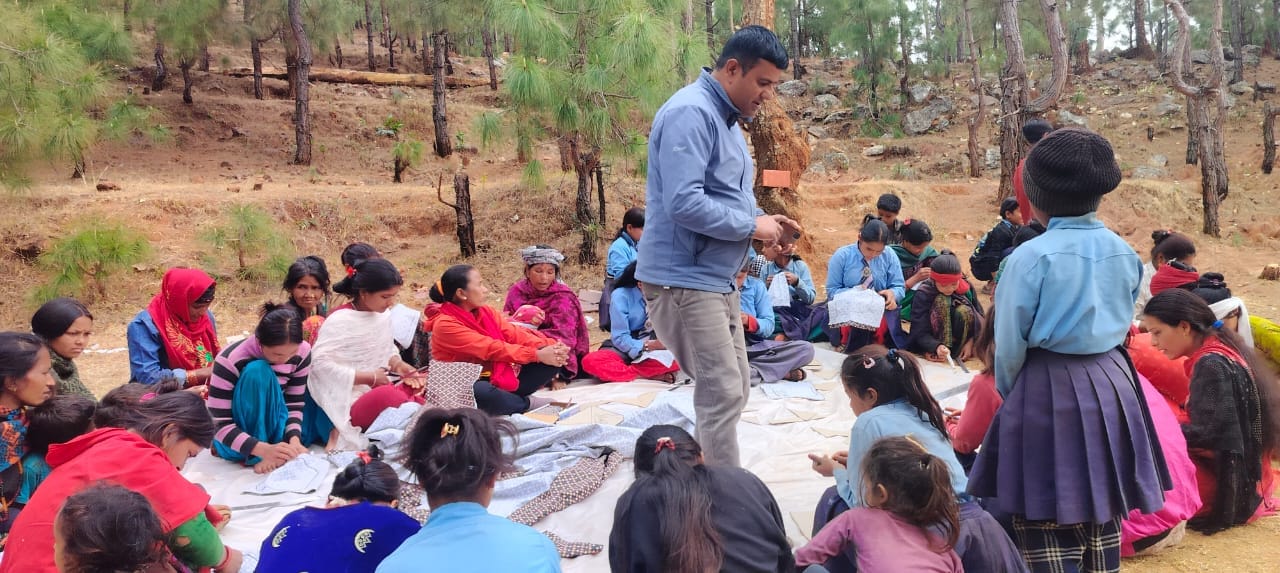
Padma, in her 40s, emphasized the importance of male support during menstruation to reduce discriminatory practices. "Men should be educated to support their female family members during menstruation," she said.
Initially skeptical, women from all three participating communities have embraced homemade pads as reliable alternatives to traditional napkins. In the communities of Ema and Matela, efforts from the Karnali team, combined with the commitment of community leaders and initiatives of the local government, have resulted in dignified menstrual hygiene practices, with family members fostering supportive environments. However, challenges persist in Thaplanigalpani, where entrenched beliefs still influence behavior and women still face hurdles.
We take heart from our successes while acknowledging that further efforts in community collaboration, capacity building, and importantly, government leadership are needed if we are to keep rural Nepal's menstrual hygiene narrative moving in the right direction.


